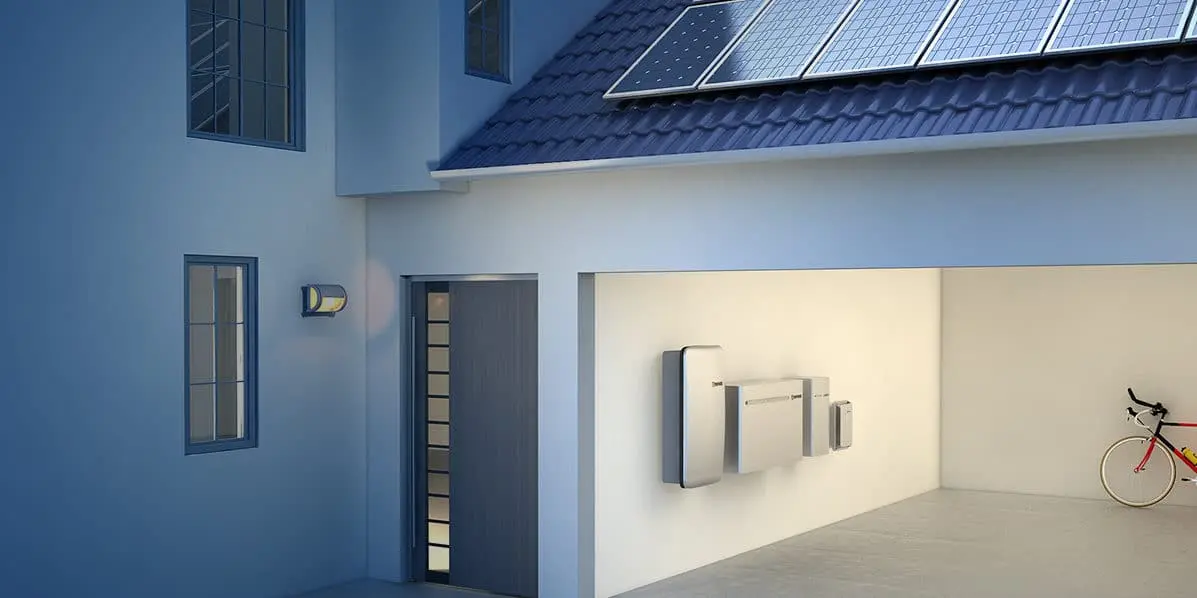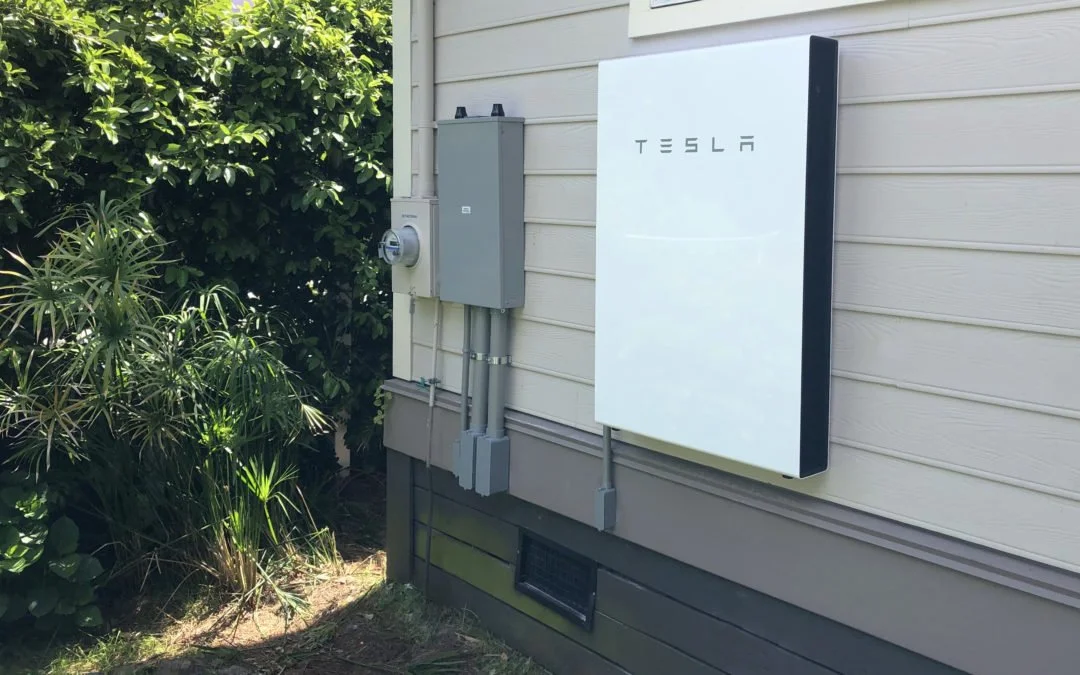Energy Storage
Always Have Power.
Energy storage with batteries plays a crucial role in managing power supply. During the day, solar panels capture sunlight and convert it into electricity. This electricity can be used immediately to power a home or business.
However, excess electricity generated that isn't used right away can be stored in batteries. These batteries store the electrical energy as chemical energy, allowing for the electricity to be used later when solar panels are not producing power, such as during the night or on cloudy days.
This system enhances energy independence and efficiency by ensuring that the users can utilize solar power even when the sun isn't shining, thereby maximizing the usage of renewable energy and reducing reliance on the grid.
Tesla Powerwall
The Tesla Powerwall is a rechargeable lithium-ion battery designed for home energy storage. It integrates with solar panel systems to store excess energy generated during the day and makes it available for use at night or during power outages, enhancing energy independence and reducing reliance on the grid.
With a capacity to store typically around 10 kilowatt-hours of electricity, the Powerwall can support a home's essential loads for several hours during a blackout or serve as a supplementary power source to reduce energy costs.
Enphase Encharge
The Enphase Encharge battery is a modular energy storage system designed to work seamlessly with Enphase solar installations. It features Enphase's proprietary microinverter technology, which optimizes energy conversion and enhances the reliability of each battery unit.
The battery supports both whole-home backup in the event of a power outage and self-consumption, enabling users to maximize their use of solar energy and reduce their reliance on the grid. The system is also equipped with smart technology that manages energy usage efficiently, providing real-time insights and control over power generation and consumption
FAQs
What is a backup battery for a solar system?
A backup battery for a solar system stores excess energy generated by solar panels. This stored energy can then be used when the solar panels aren't producing electricity, such as during nighttime or power outages.
What are the types of batteries used for solar systems?
Common types include lithium-ion batteries, which are known for their high efficiency and long lifespan, and lead-acid batteries, which are more economical but have a shorter lifespan and lower energy density
Why should I consider a backup battery for my solar system?
Installing a backup battery can enhance energy independence by providing power during outages and reduce electricity costs by allowing you to use stored solar energy instead of drawing from the grid during peak demand times.
How long can a solar battery provide power during an outage?
The duration depends on the battery’s capacity and the energy consumption of your home. Smaller batteries might power essential loads for a few hours, while larger systems could run a whole house for a day or more.
How does a backup battery integrate with a solar system?
Backup batteries are connected to a solar system through an inverter. They store the DC power generated by the solar panels, converting it to AC power as needed for household use.
Can I add a backup battery to my existing solar system?
Yes, most solar systems can be retrofitted with a backup battery. It’s important to ensure compatibility between the battery, the solar inverter, and other system components.




